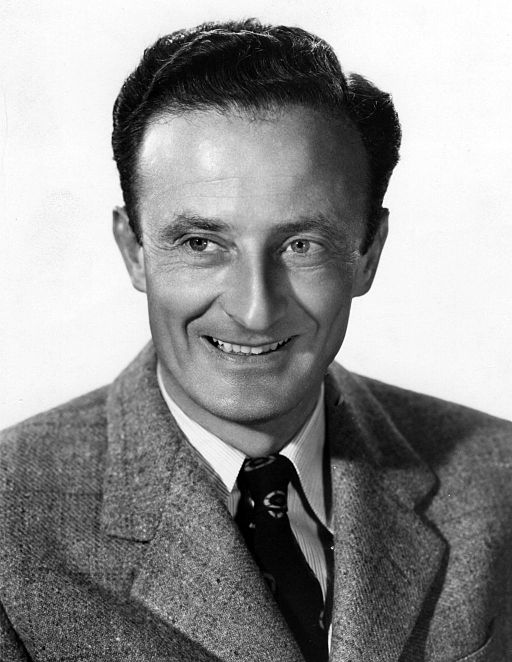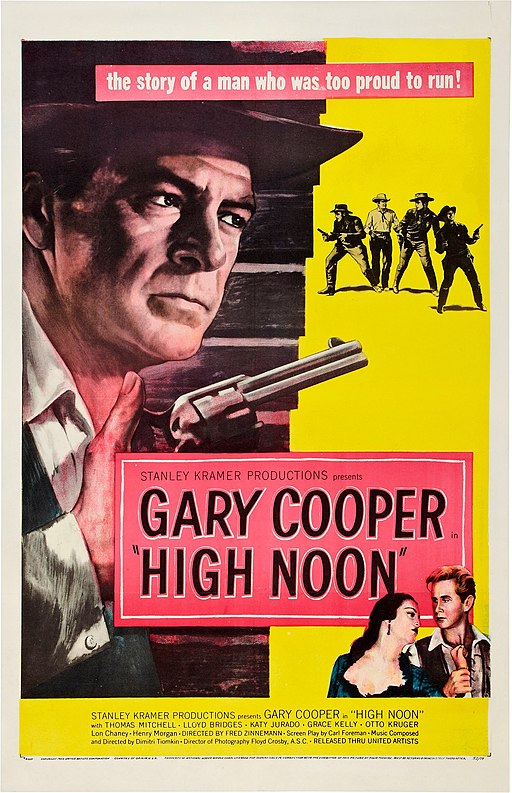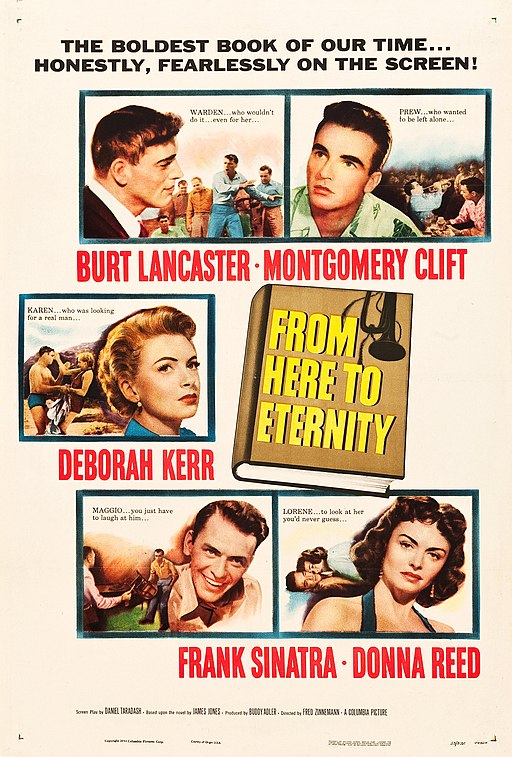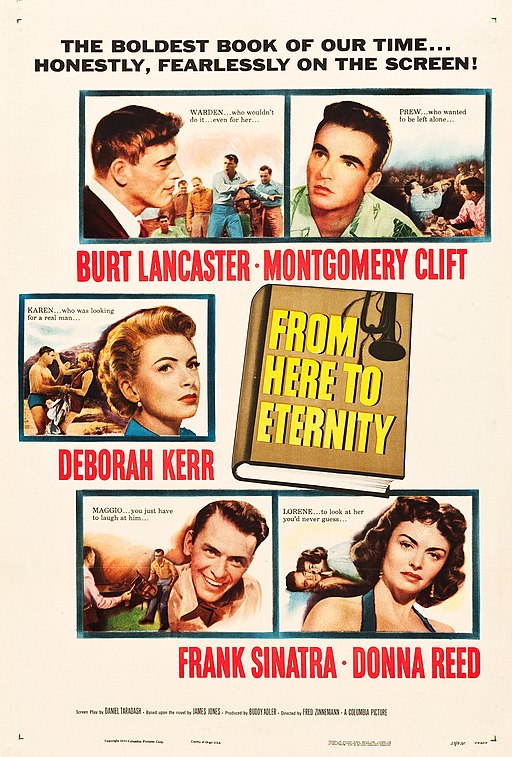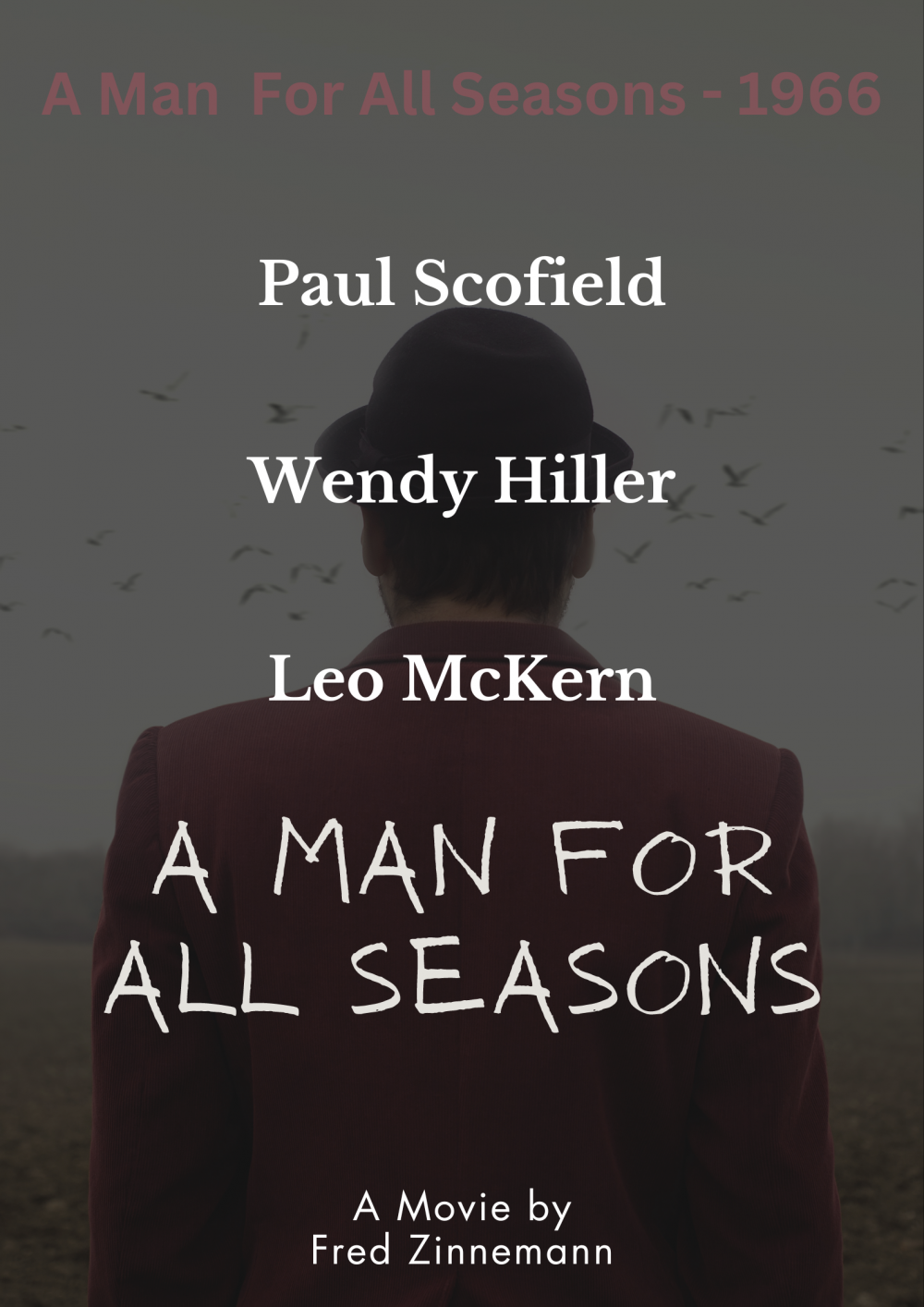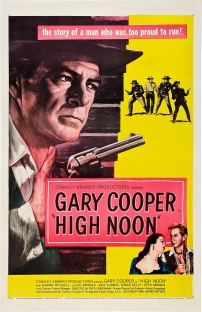Fred Zinnemann
back| Full Name | Fred Zinnemann |
| Born | April 29, 1907 |
| Birthplace | Rzeszów, Austria-Hungary (now Poland) |
| Died | March 14, 1997 |
| Buried | Cremated and ashes scattered near Santa Monica, CA, USA |
| Married to | Renee Bartlett (1936 - 1997) |
| Children | Tim Zinnemann |
| Notable films | High Noon - From Here to Eternity - A Man for All Seasons - Day of the Jackal |
Fred Zinnemann - One of the kings of the Golden Age of Hollywood
Fred Zinnemann (1907 – 1997) was an Austrian-born American film director whose career spanned over five decades, earning him a reputation as a master of cinematic realism. Born on April 29, 1907, in Rzeszów, Austria-Hungary (now Poland), he fled Europe to escape the rise of Nazism, arriving in Hollywood in the 1930s. Zinnemann's meticulous approach and commitment to authenticity became his signature.
His film "High Noon" (1952) is renowned for its real-time narrative and the riveting performance of Gary Cooper. Zinnemann's handling of social and political issues was evident in "The Search" (1948), focusing on post-war Europe's displaced persons.
He further showcased his range with the gripping war drama "From Here to Eternity" (1953), earning him his first Academy Award for Best Director. He repeated this accolade with the powerful character study "A Man for All Seasons" (1966). Additionally, his films "The Nun's Story" (1959) and "Julia" (1977) were critically acclaimed.
Despite facing challenges during Hollywood's blacklist era, Zinnemann's legacy remains intact as one of the great directors who seamlessly combined artistry with profound storytelling. He passed away on March 14, 1997, leaving behind an enduring cinematic legacy.
Related
Fred Zinnemann - Biography, analysis and movies
Fred Zinnemann was a prominent director whose career in Hollywood spanned over five decades, contributing significantly to the Golden Age of Hollywood. With a penchant for realistic, socially conscious films, Zinnemann crafted narratives that often intertwined personal stories with broader socio-political contexts.
Notable Films:
- "High Noon" (1952): A groundbreaking western that defied genre norms, focusing on a moral crisis faced by a lone sheriff, played by Gary Cooper.
- "From Here to Eternity" (1953): An impactful drama examining the lives of soldiers stationed in Hawaii before the attack on Pearl Harbor, winning eight Oscars, including Best Director.
- "A Man for All Seasons" (1966): A historical drama centered around Sir Thomas More's defiance against King Henry VIII, which swept the Oscars with six wins, including Best Picture and Best Director for Zinnemann.
- "The Day of the Jackal" (1973): A political thriller detailing an intricate assassination plot against Charles de Gaulle, exemplifying Zinnemann's knack for tension and detailed storytelling.
Early Life and Career Beginnings
Alfred Zinnemann was born in 1907 in the Polish city of Rzeszow, situated in in Galicia, then part of the Austrian-Hungary empire. His father, Oskar Zinnemann was a doctor. Both he and his mother Anna Feiwel were Austrian Jews. During World War I the Zinnemann family lived in Vienna from where his father was sent to the Russian front where he serviced as a combat medic. When returning from war Fred’s father was not himself anymore. He was traumatized by the experiences and atrocities of war that he as a doctor could not escape.
Young Fred wanted to study music but eventually chose law. In 1927 he graduated as a law student form the University of Vienna. But his artistic talent kept moving him in different directions. That is why he asked his parents if he was allowed to go to Paris to study cinematography. So he took leave from his law studies to go to Paris for a year’s study where he learned to use the camera. SO it was no surprise that after his study Fred did not go after a law career but ended up In Weimar Berlin where he worked as a cameraman for several films. There he also met Billy Wilder who later would become as famous as Fred as a film director.
Hollywood Career
In 1928, 21 years young, Fred asked his parents if they would agree to move to the United Staes as there the movie business offered much more potential for a young mam his age and with his ambition. Another reason was that Fred saw that Germany’s society was changing and not for the good. He noticed that a schism was taken place in Germany where the wealthy and poor people were either moved toward right or left extremities not making Germany’s society better off.
After moving to Hollywood in 1929, Zinnemann worked in various capacities before directing several acclaimed short films, eventually making a breakthrough with feature films. His directorial style was noted for its sharp, meticulous, and often understated approach. Zinnemann was known to give careful attention to the nuances of performances, often extracting remarkable portrayals from his actors.
His first breakthrough came with the movie The Seventh Cross that starred Spencer Tracy and Hume Blake Cronyn. It became a film hit and Cronyn was nominated for an Academy Award for Best Supporting Actor. After making some movies he was obliged by contract his second break came with the movie The Search in 1948 starring Montgomery Clift and Aline MacMahon. It was a film that told a story of a young Auschwitz survivor that went looking for his mother. It was no coincidence that Fred Zinnemann was eager to shoot this film as both his mother and father were murdered by the Nazis. His lifelong aversion against fascism and all politics that were trying to coerce their will on the people they should serve was seen through his movies.
Fred Zinnemann’s best-known movie “High Noon” (1952)
Zinnemann’s biggest success came with the western of all westerns, “High Noon”. With top actors like Gary Cooper, Grace Kelly and Lloyd Bridges Fred Zinnemann made a stunning movie that received bot commercial as well as critical success.
In "High Noon," Fred Zinnemann crafted a poignant, introspective western that went against the grain, prioritizing character and moral exploration over gunfights and traditional heroics.
Analysis of "High Noon"
- Moral Duty vs. Personal Desire: Main character Kane, played by Gary Cooper,
- experiences a moral dilemma throughout the film, torn between his duty as marshal to protect the town and his personal desire to start a peaceful life with his new wife.
- Courage and Isolation: The film explores themes of courage, responsibility, and isolation as Kane, rejected by the citizens he seeks to protect, chooses to stand against the threat despite being vastly outnumbered.
- Real-Time Narrative: Zinnemann utilized a near real-time narrative, aligning the film’s progression with the actual time elapsed onscreen, amplifying the tension and urgency of Kane's predicament.
- Political Undertones: "High Noon" has often been interpreted as an allegory for the Hollywood blacklist during the McCarthy era, highlighting the isolation and abandonment experienced by those targeted by the anti-Communist witch hunt. Screenwriter Carl Foreman was himself blacklisted during the making of the film.
- High Noon" was both a critical and commercial success. It was nominated for seven Academy Awards, winning four, including Best Actor for Cooper.
- The film’s unconventional approach to the western genre – focusing on psychological and moral conflicts over action – influenced subsequent films within and beyond the genre.
- Its title track, “Do Not Forsake Me, Oh My Darlin’” (sung by Tex Ritter), plays a critical role in accentuating the film’s thematic depth and won the Oscar for Best Original Song.
- "High Noon" remains relevant for its exploration of moral conflict, societal expectations, and individual resilience, continuing to be studied and admired by cinephiles, critics, and filmmakers alike.
1953 success with From Here to Eternity
After High Noon Fred Zinnemann’s stature was unsurpassed in Hollywood. Just one year after High Noon Zinnemann astonished the public once again with romantic war drama From Here to Eternity. Again the prizes were abound, winning 8 Academy Awards including Best Picture. Starring Burt Lancaster, Deborah Kerr, Donna Reed and Montgomery Clift it became a unbelievable success in the cinemas grossing more than 30 million dollars in revenues.
Analysis of “From Here to Eternity”
"From Here to Eternity" (1953) is one of the iconic films of Hollywood's golden age, directed by Fred Zinnemann and based on the novel of the same name by James Jones. Here's a brief analysis of the film:
Setting and Context: The film is set in Hawaii in the days leading up to the attack on Pearl Harbor in 1941. This backdrop of looming war serves to intensify the personal dramas and conflicts that unfold.
Plot: The story interweaves several plot threads involving members of a military base and the surrounding civilian community. The main narrative centers on Private Robert E. Lee Prewitt (Montgomery Clift), who rebels against the base's power dynamics and Captain Holmes's (Philip Ober) demands that he box for the company team. Another significant subplot involves Sergeant Milt Warden's (Burt Lancaster) affair with Captain Holmes's wife, Karen (Deborah Kerr).
Themes:
- Individualism vs. Authority: Prewitt's refusal to bend to the will of his superiors exemplifies the individual's struggle against oppressive authority.
- Love and Loneliness: The film delves into forbidden love (Warden and Karen), unrequited love (Prewitt's feelings for Alma, played by Donna Reed), and the loneliness inherent in military life.
- The Inevitability of Fate: The impending disaster of the Pearl Harbor attack underscores the characters' personal tragedies, suggesting that, like the larger historical event, individual fates are also sealed.
Cinematography:
The film is perhaps best remembered for its groundbreaking beach scene between Lancaster and Kerr. This passionate embrace, set against the backdrop of crashing waves, became one of the most iconic scenes in film history. Beyond this, Zinnemann's direction is marked by a focus on tight, intimate shots that underscore the characters' emotional experiences.
Performances:
The film boasts standout performances from its cast, especially Montgomery Clift, whose portrayal of Prewitt is nuanced and intense. Burt Lancaster and Deborah Kerr's chemistry is palpable, while Frank Sinatra, in a role that revived his career, plays Private Maggio, delivering a performance that earned him an Academy Award for Best Supporting Actor.
Legacy of the film:
"From Here to Eternity" is celebrated not just for its storytelling but also for its impact on cinema. It challenged Production Code boundaries with its frank depiction of sexuality and adult themes. The film won eight Academy Awards, including Best Picture and Best Director for Zinnemann.
In conclusion, "From Here to Eternity" remains a hallmark of classic cinema, revered for its deep character studies, powerful performances, and its blending of personal narratives with the grand sweep of history.
50’s, 60’s and 70’s successes
Throughout the 50’s and 60’s Zinnemann directed several other important movies like “Oklahoma!” (1955), “The Nun’s Story”(1959) and “A Man for All Seasons” (1966). In 1973 he made another groundbreaking movie, the thriller “The Day of the Jakckall”, a political thriller that meticulously traces the steps of a professional assassin, known only as the Jackal (played by Edward Fox), who is hired by a dissident paramilitary organization, the OAS, to assassinate Charles de Gaulle, the President of France.
The film presents a tense cat-and-mouse chase across Europe as the Jackal meticulously plans and prepares for the assassination while the French authorities, becoming aware of the plot, desperately attempt to identify and capture him before it’s too late. Deputy Commissioner Claude Lebel (Michael Lonsdale) leads the frantic manhunt. "The Day of the Jackal" is often cited as one of the quintessential political thrillers, with Zinnemann masterfully sustaining tension and interest despite the audience being aware of the historical outcome.
Throughout his career, Zinnemann’s films garnered numerous awards and nominations, affirming his status as one of Hollywood’s leading directors. His films were known for their substantive, character-driven narratives and often explored themes related to integrity, conscience, and moral courage.
Prizes and nominations for Fred Zinnemann
Academy Awards (Oscars):
- "The Men" (1950): Nominated - Best Writing, Story and Screenplay
- "High Noon" (1952): Nominated - Best Director
- "From Here to Eternity" (1953): Won - Best Director
- "The Nun's Story" (1959): Nominated - Best Director
- "The Sundowners" (1960): Nominated - Best Director
- "A Man for All Seasons" (1966): Won - Best Director
- "Julia" (1977): Nominated - Best Director
- Irving G. Thalberg Memorial Award: (1966) Honorary Award for producing
Golden Globe Awards:
- "From Here to Eternity" (1953): Won - Best Director
- "The Old Man and the Sea" (1958): Nominated - Best Director
- "The Nun's Story" (1959): Nominated - Best Director
- "Behold a Pale Horse" (1964): Nominated - Best Director
- "A Man for All Seasons" (1966): Won - Best Director
- "Julia" (1977): Nominated - Best Director
Directors Guild of America (DGA) Awards:
- "From Here to Eternity" (1953): Won - Outstanding Directing – Feature Film
- "The Nun's Story" (1959): Nominated - Outstanding Directing – Feature Film
- "A Man for All Seasons" (1966): Won - Outstanding Directing – Feature Film
- "Julia" (1977): Nominated - Outstanding Directing – Feature Film
- D.W. Griffith Award: (1970) Lifetime Achievement in Motion Picture Directing
- Honorary Life Member: (1989)
BAFTA Awards:
- "A Man for All Seasons" (1966): Nominated - Best Film from any Source and Best British Film
- "The Day of the Jackal" (1973): Nominated - Best Direction
- "Julia" (1977): Nominated - Best Direction
Berlin International Film Festival:
- "The Search" (1948): Won - Grand Prize of the International Jury
- "The Nun's Story" (1959): Won - OCIC Award and Nominated - Golden Berlin Bear
Cannes Film Festival:
- "The Men" (1950): Nominated - Grand Prize of the Festival
New York Film Critics Circle (NYFCC) Awards:
- "From Here to Eternity" (1953): Won - Best Director
- "A Man for All Seasons" (1966): Won - Best Director
National Board of Review (NBR) Awards:
- "A Man for All Seasons" (1966): Won - Best Director
- Career Achievement Award: (1994)
London Film Critics' Circle (LFCC) Awards:
- Director of the Year: (1977)
Remarkable quotes from Fred Zinnemann:
- On Storytelling: "I’m interested in stories about people, not so much about ideas. I like to see people tested and to see how they behave under extreme pressure."
- On Directing Actors: "I like actors to be natural. I think it's part of my job to help them feel comfortable enough to be natural."
- On Film as an Art Form: "I think of film as an art form. If I thought of it just as a way of making a living, I think I’d go mad."
- On His Approach to Filmmaking: "I don’t make message films. I’m more interested in good drama, in making good films, films that will be remembered."
- On Realism in Cinema: "I’ve always been interested in realism, even though it is the most difficult form of cinema to make."
- On Career and Success: "If you believe in yourself, if you are without fear, you will also be tolerant, non-aggressive and find love."
Personal Life and Death
Fred Zinnemann was married to Renée Bartlett from 1936 until his death in 1997. Their long-standing marriage was somewhat rare in Hollywood, known for its fleeting relationships. Renée generally stayed out of the limelight, and not a great deal is known about her personal life outside of her marriage to Fred.
The couple had one son, Tim Zinnemann, who was born on April 15, 1940. Following in his father’s footsteps to some extent, Tim Zinnemann embarked on a career in the film industry, although he opted for a career as a producer rather than as a director. He worked as a production manager and producer on several films, including "The Cowboys" (1972), "The Wind and the Lion" (1975), and "The Long Riders" (1980).
Tim Zinnemann worked closely with some notable directors and actors, and his efforts, particularly during the 1970s, were generally well-received. However, he never achieved the same level of acclaim or impact on the film industry as his father.
Despite facing several challenges throughout his career, including navigating Hollywood during the era of the McCarthy hearings, Zinnemann remained a steadfast and principled filmmaker.
Fred Zinnemann passed away on March 14, 1997, in London, England. The cause of his death is reported to be a heart attack. He was cremated, and his ashes were scattered in the neighborhood of Santa Monica, California, together with those of his wife Renee who died the same year.
Fred Zinnemann movies
1930s & 1940s:
- 1937: “People on Sunday” (uncredited)
- 1941: “Kid Glove Killer”
- 1942: “Eyes in the Night”
- 1942: “The Seventh Cross”
- 1944: “The Impatient Years”
- 1946: “Little Mister Jim”
- 1948: “The Search”
- 1948: “Act of Violence”
- 1949: “The Men”
1950s:
- 1950: “Mystery Street”
- 1950: “Teresa”
- 1951: “Benjy” (short documentary)
- 1952: “High Noon”
- 1953: “From Here to Eternity”
- 1955: “Oklahoma!”
- 1957: “A Hatful of Rain”
- 1959: “The Nun's Story”
1960s:
- 1960: “The Sundowners”
- 1964: “Behold a Pale Horse”
- 1966: “A Man for All Seasons”
1970s:
- 1973: “The Day of the Jackal”
- 1977: “Julia”
1980s:
- 1982: “Five Days One Summer”
Legacy
Fred Zinnemann left behind a legacy of compelling, thought-provoking films that continue to be celebrated for their narrative depth and cinematic quality. His ability to blend personal, intimate stories with larger societal and moral questions has made his work stand the test of time, continuing to be relevant and admired by contemporary audiences and filmmakers alike. Zinnemann’s influence extends across various genres and his extensive filmography offers a rich exploration of mid-20th-century cinema and storytelling.

